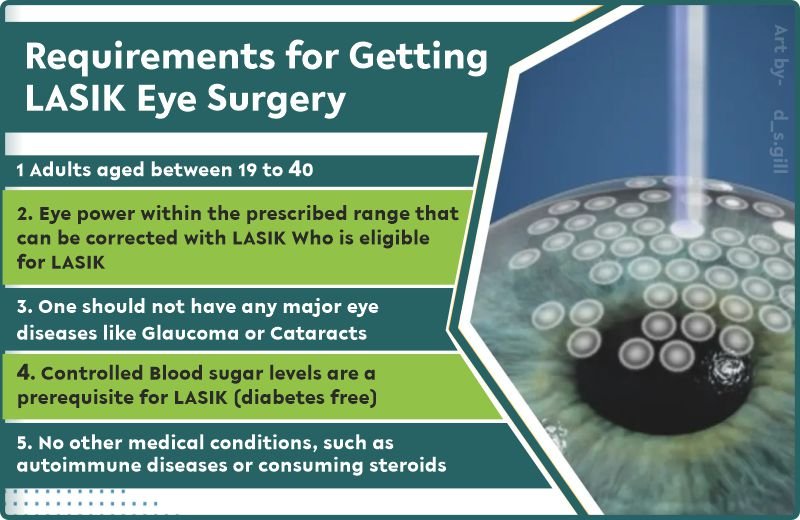Am I eligible for lasik
Understanding the Requirements for Getting LASIK Eye Surgery
Many people get LASIK (Laser-Assisted In Situ Keratomileusis) eye surgery to improve their vision and lessen their need for glasses or contacts. By fixing refractive errors like nearsightedness, farsightedness, and astigmatism, this groundbreaking process has changed the lives of millions of people. But not everyone is a good candidate for LASIK. Some strict requirements must be met in order for LASIK to be safe and successful.

The basis of eligibility is refractive stability
The most important thing for getting LASIK is having stable refractive error. People must show that they have had the same medication for at least one to two years in order to be eligible for the surgery. This stability is crucial for figuring out the exact correction that needs to be made during the process. Because LASIK may not work as well in the long run if your vision changes, patients must wait until their prescription stabilizes.
How old and developed is your vision?
People who are 18 years or older are usually good candidates for LASIK because their eyes have hit a certain level of maturity by that age. The stability of eyesight and eye health is more predictable in adults, which makes it less likely that things will change after surgery. The dentist must also check the eyes’ overall health to see if the patients are healthy enough for the surgery.
Your Corneal Thickness: An Important Safety Factor
The thickness of the eye is one of the most important things that determines who can get LASIK. During surgery, the cornea is changed, and it must be the right thickness to keep the eye’s structure intact. Doctors must carefully consider this factor before suggesting LASIK to people whose corneas are thin because they may be more likely to have problems.
Your Eye Health beyond Refractive Errors
People who wish to receive LASIK must have good overall eye health. Some medical conditions, such as glaucoma, cataracts, and severe dry eye syndrome, can make LASIK surgery unfeasible. Eye disorders that existed prior to surgery can make healing more difficult and alter how well the procedure works. A comprehensive eye exam examines the health of the cornea, retina, and other vital elements of the eye.
Hormonal Changes During Pregnancy
Hormonal changes, like the ones experienced during pregnancy, might make it challenging to keep your eyes stable. As a result, women should wait a few months after having birth or nursing before considering LASIK. Hormone fluctuations can have an impact on how successfully pre-surgery assessments are gathered and how well the operation goes overall.
Setting Realistic Goals with LASIK Surgery
despite the fact that the procedure has a high success rate.LASIK-interested individuals must have reasonable expectations about the results of their LASIK procedure; not everyone may well get perfect 20/20 vision without being assisted by corrective lenses like glasses or contacts. Patients are better able to manage their expectations after having a detailed consultation with their surgeon, which also ensures that they are aware of both the possible benefits and the limitations of LASIK.
Conclusion
LASIK eye surgery is a life-changing treatment that has given many people their freedom of sight. But the requirements for qualifying are there to make sure that the surgery is safe and effective. Refractive stability, age, corneal thickness, eye health, hormonal changes, and having realistic goals all play a role in figuring out who should get LASIK. As technology keeps getting better, the requirements may change, letting more people benefit from this life-changing treatment. An open and honest conversation with your eye doctor is the first thing you should do if you are thinking about LASIK. This will help you get the clear vision you want.
